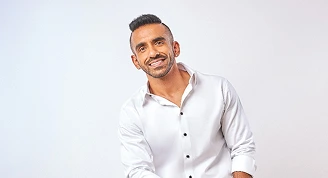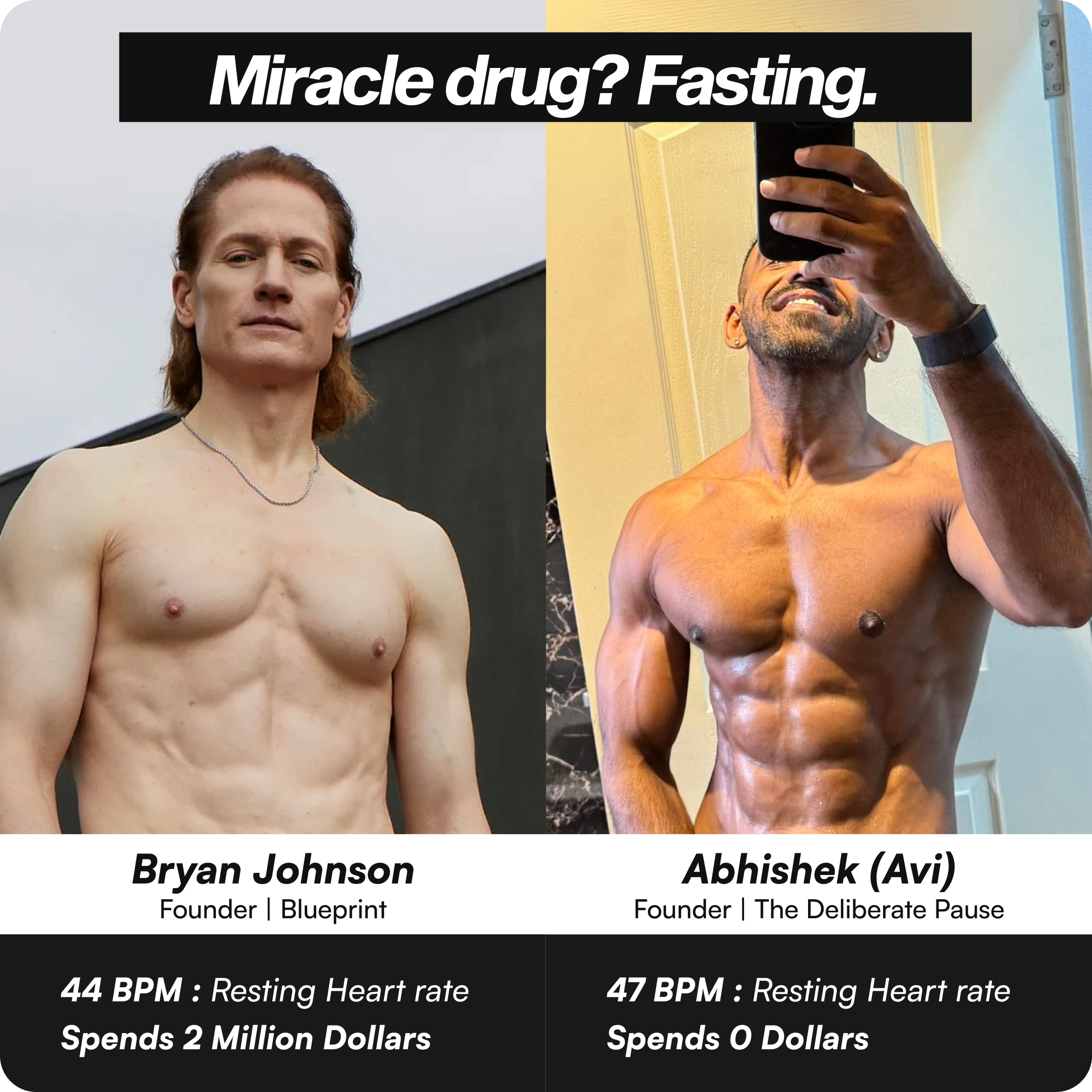
What if an act of awakening actually does not require you to do anything? I can bet Twitter founder Jack Dorsey, who is known for his minimalist lifestyle and frugal eating habits, will agree no less.
While everyone sees a mountain to be climbed in learning focus techniques to reach peak productivity, which is linked with heightened brain activity, I have discovered something counterintuitive.
The path to mental clarity is not about adding more, but removing the clutter within.
For confirmation, one can turn to our own ancient literature, like the Yoga Sutras by Patanjali, where the great yoga guru introduced concepts like Pratyahara, which literally means withdrawal of the senses, but metaphorically suggests decluttering our inner self.This birthday, I tested my self-control and mental discipline with a 90-hour fast, and what I found confirmed something profound: most of the time, less is more. By the end of my three-day journey, I understood why every major religion prescribes fasting, why elite performers quietly use it, and why our food-obsessed culture might be unknowingly limiting our cognitive potential.
The mind that's constantly managing food decisions, energy crashes, and digestive processes is a mind operating at partial capacity. The question isn't whether fasting works for clarity and cognitive optimisation. Centuries of practice and modern research confirm it does. The question is whether you're willing to temporarily give up one comfort to discover a capability you didn't know you had.
.png)
How It All Started
My relationship with fasting began by accident, not design. During a particularly hectic period years ago, I found myself so consumed with work that I simply forgot to eat for nearly 18 hours. Instead of the expected energy crash, something unexpected happened: my to-do list seemed to shrink. Not because tasks disappeared, but because my mind automatically optimised for what truly mattered.
Since then, I've experimented with various fasting techniques, from intermittent fasting to OMAD. The goal has been to cultivate self-control and mental clarity that cuts through the noise of modern life, but in our food-centric culture, we've made eating so frequent, so social, so emotional that we rarely experience what our minds can do when freed from constant digestive management.
This observation led me to a bigger question: What if our relationship with food is actually limiting the very performance we're trying to optimise? What if our consumer-driven society, where food and alcohol sit at the centre of every occasion, has created a dependency that clouds our natural mental acuity? Answers to these needed me to try harder, and therefore, a 90-hour fast.
Discomfort As My Birthday Gift
The decision to undertake the fast was crystallised during my farewell party. As I watched colleagues unconsciously reaching for snacks while reminiscing about old memories and chugging beer, eating heavy carb meals, I realised that our relationship with food is far more than just about hunger. It is emotional. It is social. We are victims of a consumption-driven society where food and alcohol sit at the centre of making memories. While observing my friends and colleagues, a deep sense of power overtook me, and I decided I wasn't just going to do a birthday fast, but an extended fast for 72 hours. Eventually, that became a 90-hour journey that would transform my understanding of my own mental resilience.
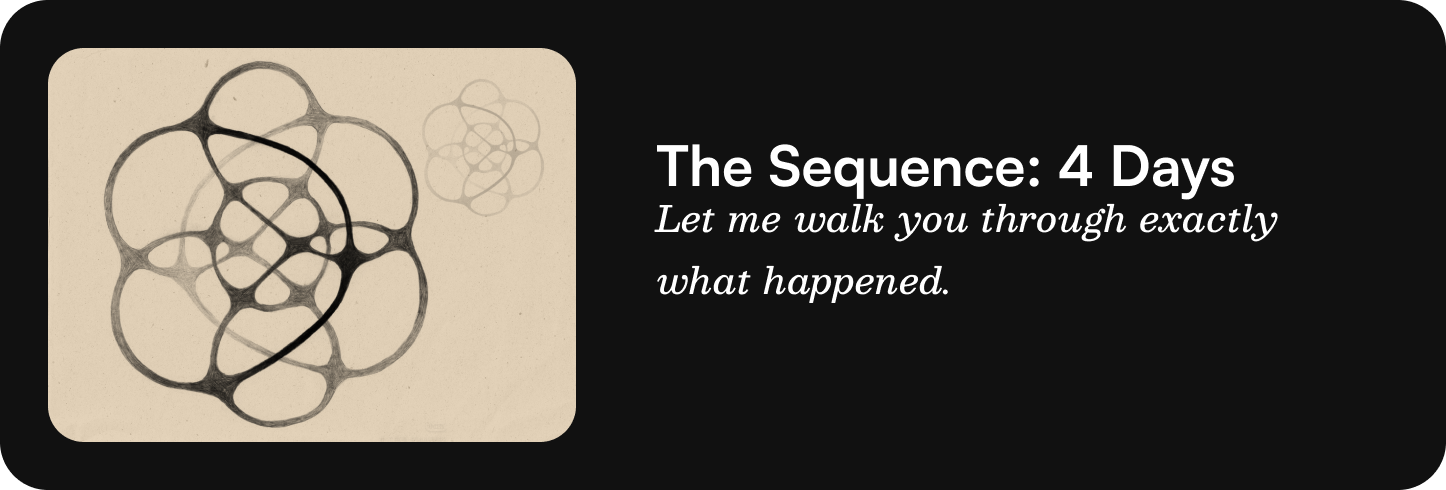
Hour 0, July 14th, 9 PM:
I finished my last strategic meal containing high protein options, moderate healthy fats, and minimal carbs to optimise the metabolic switch.
Day 1, July 15th:
Instead of going to a vacation spot, I decided to stay in the comfort of my home. So I took a flight from Hyderabad to Mumbai. My body was already accustomed to 24-hour fasts and OMAD protocols, so this felt manageable. My HRV spiked to the 80s - some of my highest biomarker readings ever. Sleep quality was exceptional, suggesting my autonomic nervous system was optimising without digestive load.
Day 2, July 16th:
This was the inflection point. My morning ritual of yoga followed by an hour of meditation became my anchor as hunger signals intensified. But here's what surprised me: the voice saying "you're hungry, you need food, you'll lose muscle" wasn't actually my body talking. It was my conditioned mind, programmed by decades of eating every few hours. When I separated the mental noise from actual physical sensations, I discovered my body was far more capable than my anxious thoughts suggested. HRV remained elevated but began declining slightly, indicating manageable stress adaptation.
Day 3, July 17th:
The same ritual of morning yoga followed by meditation practice was repeated, but I could feel the energy deficit, and yet my mental state was remarkably clear. A sustained flow state I rarely experience. My brain, now running primarily on ketones, seemed to operate at a different frequency. HRV and glucose levels were similar to day 2, but cognitive function remained sharp.
Hour 90, July 18th:
I started correctly with lemon water, watermelon, bone broth, then khichdi and protein. But I made my rookie mistake: I got excited about food and ate a large meal late that night. My HRV crashed to monthly lows. A powerful biofeedback lesson that refeeding protocol matters as much as fasting execution.
Day 4+:
I'm more mindful of what I consume. I'm trying to make a small switch and now have my last meal before sunset to give myself two large advantages: proper sleep (digestive system isn't working as hard) and morning clarity for deep work.
I'm a data-driven founder. I needed quantified self-validation, not just subjective feelings. Throughout my 90-hour protocol, I tracked HRV, RHR, and cognitive state using my Whoop device and subjective energy scoring.
The biomarker story was fascinating. Day 1 showed immediate optimisation. HRV spiked to the 80s (my usual range is 60-70s), suggesting enhanced autonomic nervous system recovery. Sleep efficiency peaked. Days 2-3 showed manageable stress adaptation: HRV remained elevated but declined slightly as my body worked harder to maintain homeostasis. RHR increased marginally. Most importantly, cognitive function remained sharp even as physical energy decreased, confirming that mental and physical energy systems operate on different metabolic pathways.
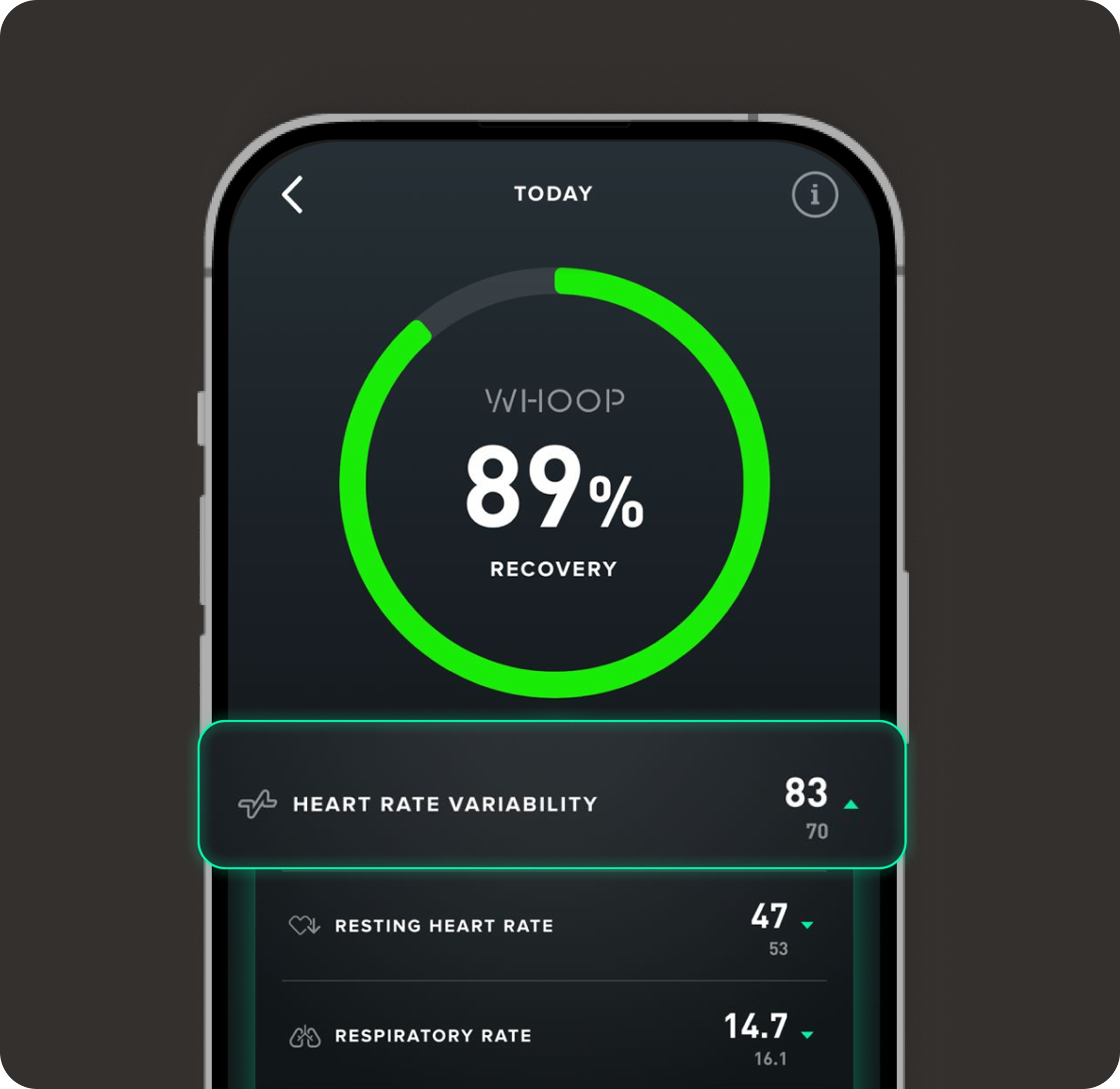
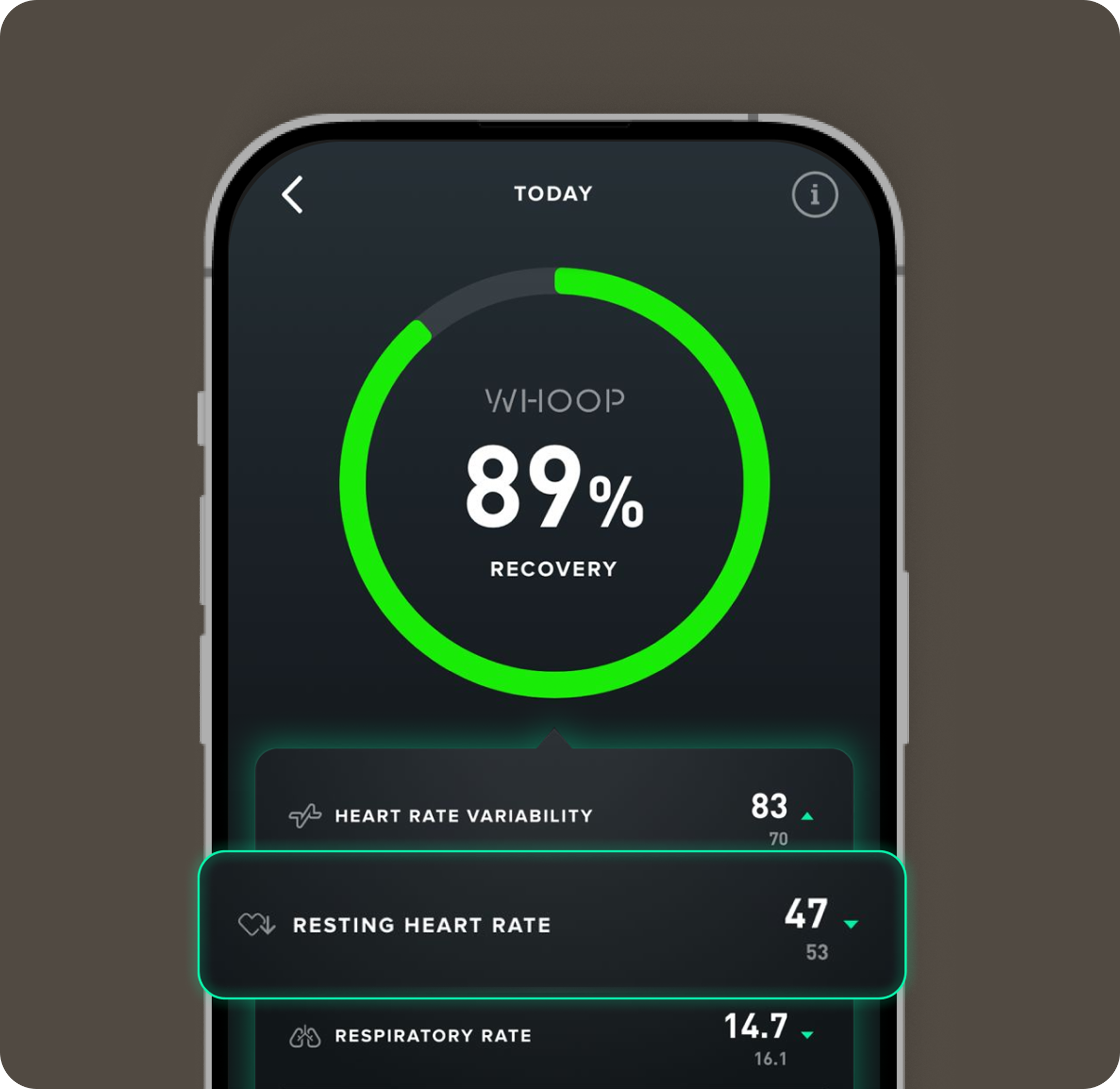
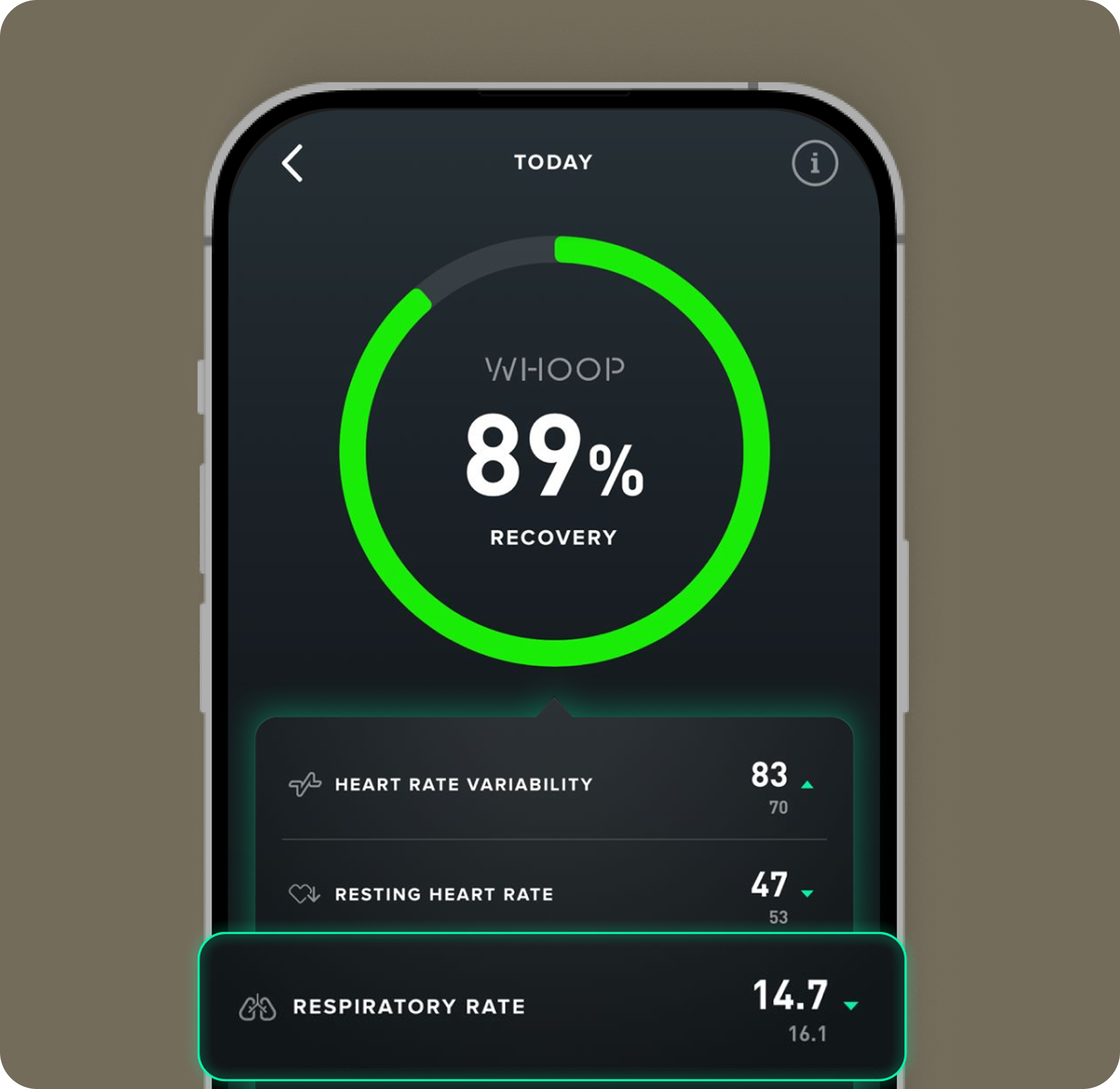
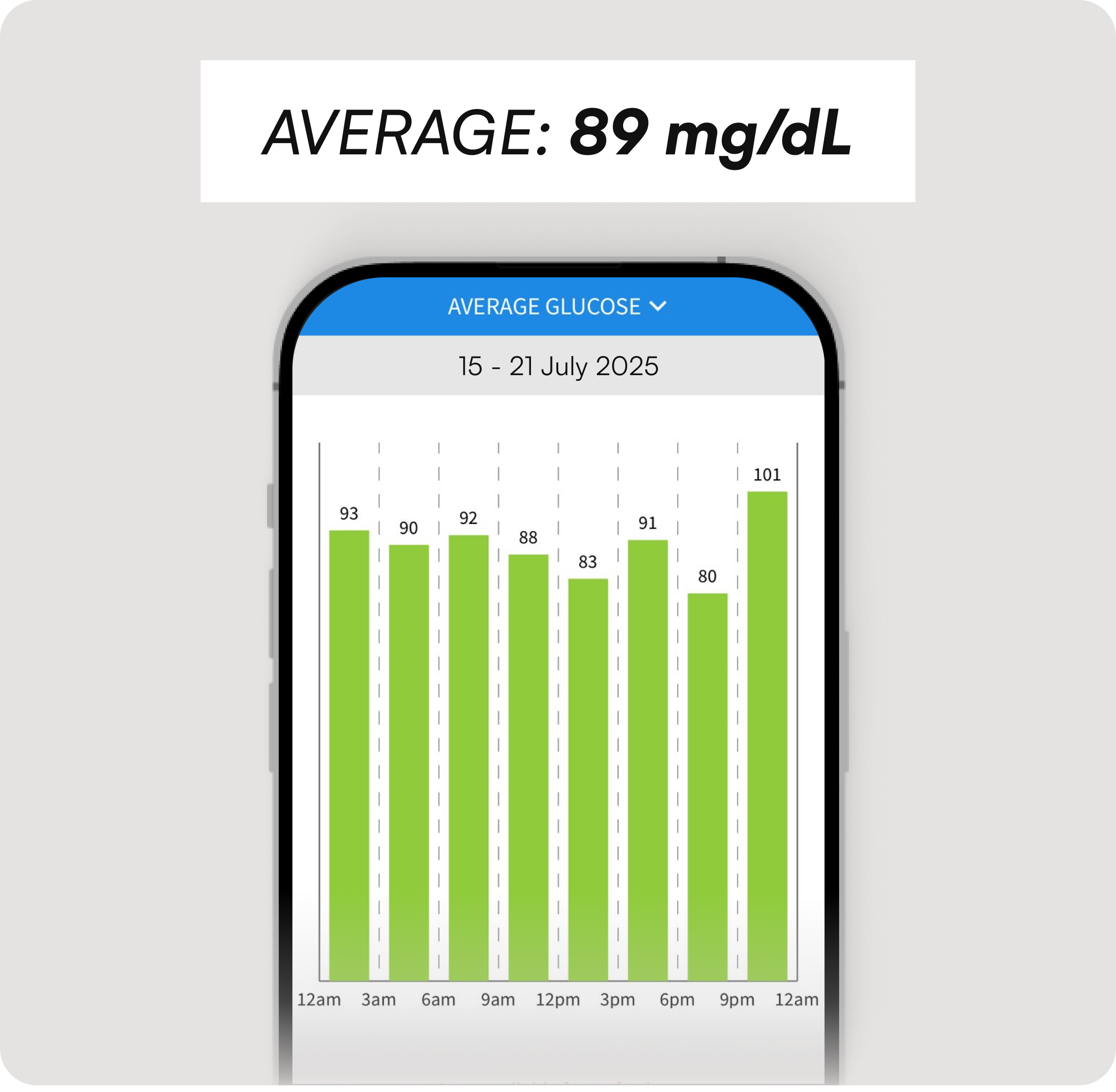
The Deep Comparison
Here's where most people miss the profound difference between how we approach food versus how elite performers approach cognitive optimisation.
Most startup founders eat every 3-4 hours because we're "supposed to." We grab snacks during back-to-back meetings. We plan investor pitches around meal times. We use food as stress relief after difficult conversations with co-founders. Our days are structured around feeding schedules, and our cognitive load is constantly diverted to food decisions and digestive processes. After a big meal, 65% of your energy goes to digestion, not your brain. That’s fuel you could’ve used for your next big idea.
Now look at how peak performers actually optimise. Naval Ravikant practises an intermittent fasting routine. Elon Musk forgets to eat during intense work sessions. Phil Libin, former Evernote CEO, adopts weekly 36-hour fasts for focus and clarity. Twitter's Jack Dorsey eats one meal a day and does 3-day water fasts, reporting that time perception "slows down" during extended fasts. Adrian Li from Convergence Ventures credits his 4-year fasting practice with enhanced decision-making. High performers know a secret: clarity comes from subtraction, not addition. While we're optimising diets and meal timing, they're optimising their relationship with hunger itself. As one entrepreneur put it: "You get more quality work done by not having to worry about grabbing food and eating."
The core principle: consistent, clean energy beats constant energy. Sometimes, teaching your metabolic system to operate independently of frequent glucose spikes creates the most reliable performance. As venture capitalist Adrian Li notes: "For busy entrepreneurs, it's not unusual to end up missing meals now and then, but doing it purposefully and benefiting from regular fasting is an additional bonus."
This isn't new. It's ancient wisdom dressed in biohacker terminology. Every major religion prescribes fasting: Hinduism's Ekadashi, Islam's Ramadan, Christianity's Lent, Judaism's Yom Kippur. These weren't just spiritual practices; they were cognitive optimisation protocols disguised as religious observance. Silicon Valley is finally catching up to what contemplative traditions have discovered over millennia.
The Science & Validation
Dr. Andrew Huberman's research confirms what I experienced firsthand: many people report "heightened mental clarity" and improved "focus and concentration" when fasted. This happens partly because we avoid the post-meal parasympathetic crash, but the mechanisms run deeper.
Here's what's actually happening during fasting. Your body depletes liver glycogen and switches to ketosis. Your brain starts running on beta-hydroxybutyrate instead of glucose. This isn't just alternative fuel; it's premium fuel. Ketones give your brain more energy with less effort, like switching from regular fuel to rocket fuel. They also act as signalling molecules, reducing neuroinflammation and oxidative stress.
The cellular effects are profound. Autophagy ramps up (your brain's "garbage collection" system), BDNF production increases by up to 400% (the "Miracle-Gro for your brain"), and insulin sensitivity improves dramatically. Growth hormone spikes by 2-5x baseline levels, and fasting triggers neurogenesis, the production of new brain cells. Unlike expensive "anti-ageing" clinics, you can hack this naturally.
But let's talk about risks, because they're real. Extended fasting isn't a productivity hack you can just wing. Electrolyte imbalances can cause heart palpitations. (I supplement with sodium, potassium, and magnesium religiously.) Muscle loss accelerates after 72 hours if you're not carrying excess fat. Some people also experience mood crashes. Women can see hormonal disruptions, especially during menstrual cycles.
Don't attempt extended fasting if you have medical conditions, eating disorders, diabetes, or are pregnant/nursing. This isn't medical advice. It's one founder's experiment that happened to work. Start small, track everything, and have an exit strategy.
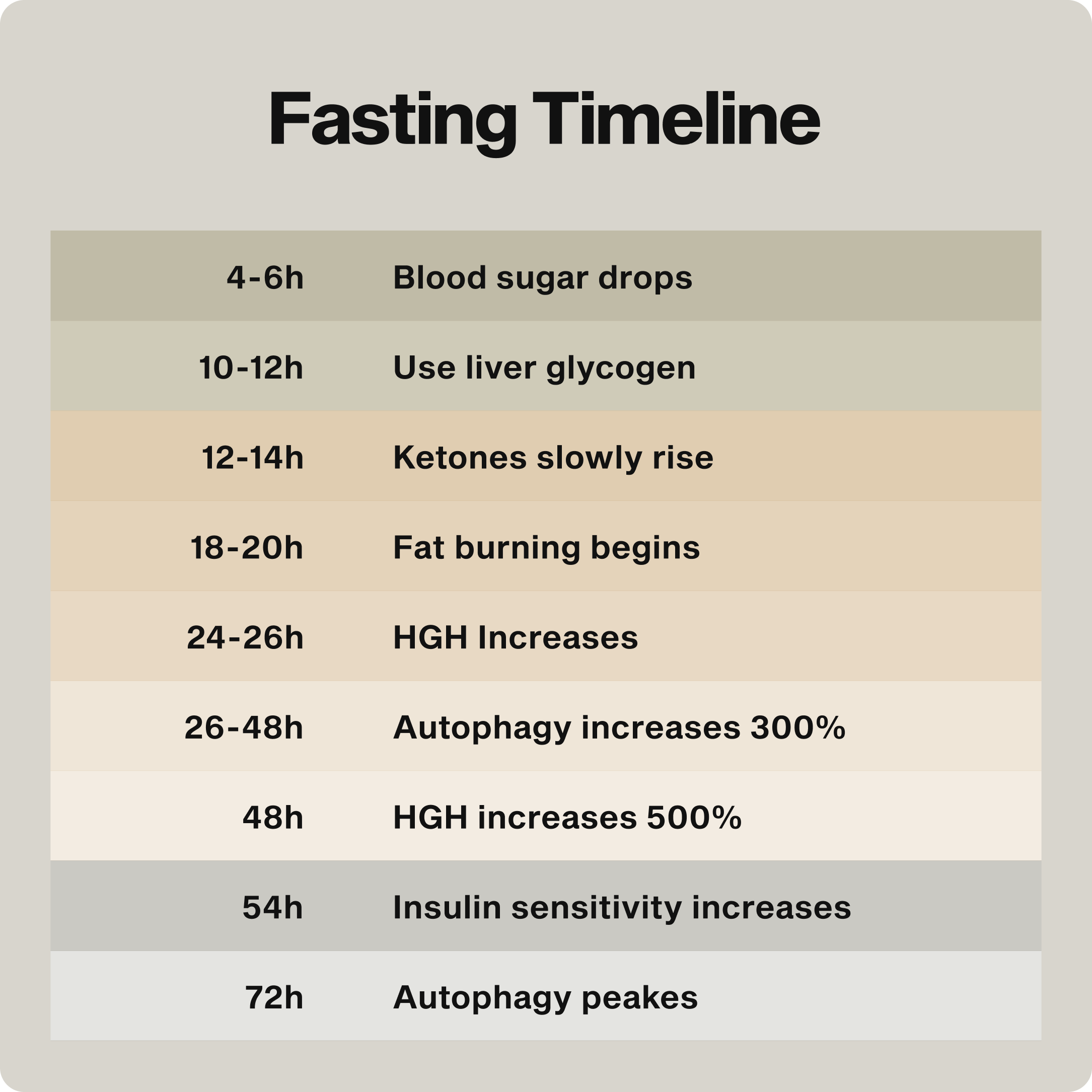
The Choice & Action
Most startup founders will never try an extended fast because they're afraid of what they might discover about their relationship with comfort, control, and constant stimulation. But here's what happens if you don't explore this: you remain dependent on external inputs for cognitive performance, like caffeine, frequent meals, and nootropics, never discovering what your baseline system can accomplish. The opportunities are, in fact, massive. In our hyper-stimulated founder ecosystem, the ability to maintain strategic clarity while managing discomfort becomes a genuine competitive advantage.
Your implementation options:
Most startup founders will never try an extended fast because they're afraid of what they might discover about their relationship with comfort, control, and constant stimulation. But here's what happens if you don't explore this: you remain dependent on external inputs for cognitive performance, like caffeine, frequent meals, and nootropics, never discovering what your baseline system can accomplish. The opportunities are, in fact, massive. In our hyper-stimulated founder ecosystem, the ability to maintain strategic clarity while managing discomfort becomes a genuine competitive advantage.
For beginners:
Start with a 36-hour fast. From dinner to breakfast, skip one full day of eating. Track cognitive state, energy levels, and decision-making quality. Many founders discover this is their optimal protocol for quarterly strategic planning sessions.
For intermediate biohackers:
Try a 72-hour fast during a low-stakes period. Not during board meetings or product launches. Schedule it like you would a meditation retreat. Clear calendar, minimal obligations, focus on reflection and strategic thinking. The discipline and clarity gained compound when you return to high-pressure situations.
Critical protocols matter here. Maintain electrolyte balance with sodium, potassium, and magnesium. Track biomarkers if possible: HRV, glucose, RHR. Plan refeeding as carefully as fasting. Start with easily digestible foods, and avoid large meals immediately post-fast. Consider this a cognitive enhancement tool, not a weight loss hack.
The Uncomfortable Truth
The 90-hour fast has taught me that we've been asking the wrong question entirely. We obsess over what to add to our lives for peak performance, but never think of giving up anything. But the most powerful cognitive enhancement I've ever experienced came from subtraction, from sitting with discomfort instead of immediately reaching for relief.
My 90-hour fast wasn't just about proving I could go without food. It was about discovering what becomes possible when you stop outsourcing your mental state to external inputs. It was about realising that our baseline system is far more capable than our anxious mind believes.
The entrepreneurs who will dominate the next decade won't be the ones with the most sophisticated biohacking stacks. They'll be the ones who've learned to operate clearly under pressure, to think strategically during chaos, and maintain focus when everything around them is demanding attention.
Most people will read this, nod along, and change nothing. They'll bookmark it for "when they have time" or "after this big project." They'll find perfectly rational reasons why fasting doesn't fit their lifestyle, their schedule, their circumstances.
But a small group will try a 36-hour fast this weekend. An even smaller group will attempt 72 hours during their next break. And a tiny fraction will discover what I discovered: that our relationship with discomfort determines our ceiling for achievement.
Next time you want to celebrate your birthday, skip the feast. Give yourself the gift of discovering what your mind can do when it's not managing constant inputs. You might find, like I did, that the clarity you're seeking was there all along. You just had to stop feeding the noise to hear it.
The challenge isn't whether you can ‘add’ a fast to your itinerary. It's whether you can afford to ‘subtract’ from your life what a fast has to offer.
Your move.
What if an act of awakening actually does not require you to do anything? I can bet Twitter founder Jack Dorsey, who is known for his minimalist lifestyle and frugal eating habits, will agree no less.
While everyone sees a mountain to be climbed in learning focus techniques to reach peak productivity, which is linked with heightened brain activity, I have discovered something counterintuitive.
The path to mental clarity is not about adding more, but removing the clutter within.
For confirmation, one can turn to our own ancient literature, like the Yoga Sutras by Patanjali, where the great yoga guru introduced concepts like Pratyahara, which literally means withdrawal of the senses, but metaphorically suggests decluttering our inner self.This birthday, I tested my self-control and mental discipline with a 90-hour fast, and what I found confirmed something profound: most of the time, less is more. By the end of my three-day journey, I understood why every major religion prescribes fasting, why elite performers quietly use it, and why our food-obsessed culture might be unknowingly limiting our cognitive potential.
The mind that's constantly managing food decisions, energy crashes, and digestive processes is a mind operating at partial capacity. The question isn't whether fasting works for clarity and cognitive optimisation. Centuries of practice and modern research confirm it does. The question is whether you're willing to temporarily give up one comfort to discover a capability you didn't know you had.
.png)
How It All Started
My relationship with fasting began by accident, not design. During a particularly hectic period years ago, I found myself so consumed with work that I simply forgot to eat for nearly 18 hours. Instead of the expected energy crash, something unexpected happened: my to-do list seemed to shrink. Not because tasks disappeared, but because my mind automatically optimised for what truly mattered.
Since then, I've experimented with various fasting techniques, from intermittent fasting to OMAD. The goal has been to cultivate self-control and mental clarity that cuts through the noise of modern life, but in our food-centric culture, we've made eating so frequent, so social, so emotional that we rarely experience what our minds can do when freed from constant digestive management.
This observation led me to a bigger question: What if our relationship with food is actually limiting the very performance we're trying to optimise? What if our consumer-driven society, where food and alcohol sit at the centre of every occasion, has created a dependency that clouds our natural mental acuity? Answers to these needed me to try harder, and therefore, a 90-hour fast.
Discomfort As My Birthday Gift
The decision to undertake the fast was crystallised during my farewell party. As I watched colleagues unconsciously reaching for snacks while reminiscing about old memories and chugging beer, eating heavy carb meals, I realised that our relationship with food is far more than just about hunger. It is emotional. It is social. We are victims of a consumption-driven society where food and alcohol sit at the centre of making memories. While observing my friends and colleagues, a deep sense of power overtook me, and I decided I wasn't just going to do a birthday fast, but an extended fast for 72 hours. Eventually, that became a 90-hour journey that would transform my understanding of my own mental resilience.

Hour 0, July 14th, 9 PM:
I finished my last strategic meal containing high protein options, moderate healthy fats, and minimal carbs to optimise the metabolic switch.
Day 1, July 15th:
Instead of going to a vacation spot, I decided to stay in the comfort of my home. So I took a flight from Hyderabad to Mumbai. My body was already accustomed to 24-hour fasts and OMAD protocols, so this felt manageable. My HRV spiked to the 80s - some of my highest biomarker readings ever. Sleep quality was exceptional, suggesting my autonomic nervous system was optimising without digestive load.
Day 2, July 16th:
This was the inflection point. My morning ritual of yoga followed by an hour of meditation became my anchor as hunger signals intensified. But here's what surprised me: the voice saying "you're hungry, you need food, you'll lose muscle" wasn't actually my body talking. It was my conditioned mind, programmed by decades of eating every few hours. When I separated the mental noise from actual physical sensations, I discovered my body was far more capable than my anxious thoughts suggested. HRV remained elevated but began declining slightly, indicating manageable stress adaptation.
Day 3, July 17th:
The same ritual of morning yoga followed by meditation practice was repeated, but I could feel the energy deficit, and yet my mental state was remarkably clear. A sustained flow state I rarely experience. My brain, now running primarily on ketones, seemed to operate at a different frequency. HRV and glucose levels were similar to day 2, but cognitive function remained sharp.
Hour 90, July 18th:
I started correctly with lemon water, watermelon, bone broth, then khichdi and protein. But I made my rookie mistake: I got excited about food and ate a large meal late that night. My HRV crashed to monthly lows. A powerful biofeedback lesson that refeeding protocol matters as much as fasting execution.
Day 4+:
I'm more mindful of what I consume. I'm trying to make a small switch and now have my last meal before sunset to give myself two large advantages: proper sleep (digestive system isn't working as hard) and morning clarity for deep work.
I'm a data-driven founder. I needed quantified self-validation, not just subjective feelings. Throughout my 90-hour protocol, I tracked HRV, RHR, and cognitive state using my Whoop device and subjective energy scoring.
The biomarker story was fascinating. Day 1 showed immediate optimisation. HRV spiked to the 80s (my usual range is 60-70s), suggesting enhanced autonomic nervous system recovery. Sleep efficiency peaked. Days 2-3 showed manageable stress adaptation: HRV remained elevated but declined slightly as my body worked harder to maintain homeostasis. RHR increased marginally. Most importantly, cognitive function remained sharp even as physical energy decreased, confirming that mental and physical energy systems operate on different metabolic pathways.




The Deep Comparison
Here's where most people miss the profound difference between how we approach food versus how elite performers approach cognitive optimisation.
Most startup founders eat every 3-4 hours because we're "supposed to." We grab snacks during back-to-back meetings. We plan investor pitches around meal times. We use food as stress relief after difficult conversations with co-founders. Our days are structured around feeding schedules, and our cognitive load is constantly diverted to food decisions and digestive processes. After a big meal, 65% of your energy goes to digestion, not your brain. That’s fuel you could’ve used for your next big idea.
Now look at how peak performers actually optimise. Naval Ravikant practises an intermittent fasting routine. Elon Musk forgets to eat during intense work sessions. Phil Libin, former Evernote CEO, adopts weekly 36-hour fasts for focus and clarity. Twitter's Jack Dorsey eats one meal a day and does 3-day water fasts, reporting that time perception "slows down" during extended fasts. Adrian Li from Convergence Ventures credits his 4-year fasting practice with enhanced decision-making. High performers know a secret: clarity comes from subtraction, not addition. While we're optimising diets and meal timing, they're optimising their relationship with hunger itself. As one entrepreneur put it: "You get more quality work done by not having to worry about grabbing food and eating."
The core principle: consistent, clean energy beats constant energy. Sometimes, teaching your metabolic system to operate independently of frequent glucose spikes creates the most reliable performance. As venture capitalist Adrian Li notes: "For busy entrepreneurs, it's not unusual to end up missing meals now and then, but doing it purposefully and benefiting from regular fasting is an additional bonus."
This isn't new. It's ancient wisdom dressed in biohacker terminology. Every major religion prescribes fasting: Hinduism's Ekadashi, Islam's Ramadan, Christianity's Lent, Judaism's Yom Kippur. These weren't just spiritual practices; they were cognitive optimisation protocols disguised as religious observance. Silicon Valley is finally catching up to what contemplative traditions have discovered over millennia.
The Science & Validation
Dr. Andrew Huberman's research confirms what I experienced firsthand: many people report "heightened mental clarity" and improved "focus and concentration" when fasted. This happens partly because we avoid the post-meal parasympathetic crash, but the mechanisms run deeper.
Here's what's actually happening during fasting. Your body depletes liver glycogen and switches to ketosis. Your brain starts running on beta-hydroxybutyrate instead of glucose. This isn't just alternative fuel; it's premium fuel. Ketones give your brain more energy with less effort, like switching from regular fuel to rocket fuel. They also act as signalling molecules, reducing neuroinflammation and oxidative stress.
The cellular effects are profound. Autophagy ramps up (your brain's "garbage collection" system), BDNF production increases by up to 400% (the "Miracle-Gro for your brain"), and insulin sensitivity improves dramatically. Growth hormone spikes by 2-5x baseline levels, and fasting triggers neurogenesis, the production of new brain cells. Unlike expensive "anti-ageing" clinics, you can hack this naturally.
But let's talk about risks, because they're real. Extended fasting isn't a productivity hack you can just wing. Electrolyte imbalances can cause heart palpitations. (I supplement with sodium, potassium, and magnesium religiously.) Muscle loss accelerates after 72 hours if you're not carrying excess fat. Some people also experience mood crashes. Women can see hormonal disruptions, especially during menstrual cycles.
Don't attempt extended fasting if you have medical conditions, eating disorders, diabetes, or are pregnant/nursing. This isn't medical advice. It's one founder's experiment that happened to work. Start small, track everything, and have an exit strategy.

The Choice & Action
Most startup founders will never try an extended fast because they're afraid of what they might discover about their relationship with comfort, control, and constant stimulation. But here's what happens if you don't explore this: you remain dependent on external inputs for cognitive performance, like caffeine, frequent meals, and nootropics, never discovering what your baseline system can accomplish. The opportunities are, in fact, massive. In our hyper-stimulated founder ecosystem, the ability to maintain strategic clarity while managing discomfort becomes a genuine competitive advantage.
Your implementation options:
Most startup founders will never try an extended fast because they're afraid of what they might discover about their relationship with comfort, control, and constant stimulation. But here's what happens if you don't explore this: you remain dependent on external inputs for cognitive performance, like caffeine, frequent meals, and nootropics, never discovering what your baseline system can accomplish. The opportunities are, in fact, massive. In our hyper-stimulated founder ecosystem, the ability to maintain strategic clarity while managing discomfort becomes a genuine competitive advantage.
For beginners:
Start with a 36-hour fast. From dinner to breakfast, skip one full day of eating. Track cognitive state, energy levels, and decision-making quality. Many founders discover this is their optimal protocol for quarterly strategic planning sessions.
For intermediate biohackers:
Try a 72-hour fast during a low-stakes period. Not during board meetings or product launches. Schedule it like you would a meditation retreat. Clear calendar, minimal obligations, focus on reflection and strategic thinking. The discipline and clarity gained compound when you return to high-pressure situations.
Critical protocols matter here. Maintain electrolyte balance with sodium, potassium, and magnesium. Track biomarkers if possible: HRV, glucose, RHR. Plan refeeding as carefully as fasting. Start with easily digestible foods, and avoid large meals immediately post-fast. Consider this a cognitive enhancement tool, not a weight loss hack.
The Uncomfortable Truth
The 90-hour fast has taught me that we've been asking the wrong question entirely. We obsess over what to add to our lives for peak performance, but never think of giving up anything. But the most powerful cognitive enhancement I've ever experienced came from subtraction, from sitting with discomfort instead of immediately reaching for relief.
My 90-hour fast wasn't just about proving I could go without food. It was about discovering what becomes possible when you stop outsourcing your mental state to external inputs. It was about realising that our baseline system is far more capable than our anxious mind believes.
The entrepreneurs who will dominate the next decade won't be the ones with the most sophisticated biohacking stacks. They'll be the ones who've learned to operate clearly under pressure, to think strategically during chaos, and maintain focus when everything around them is demanding attention.
Most people will read this, nod along, and change nothing. They'll bookmark it for "when they have time" or "after this big project." They'll find perfectly rational reasons why fasting doesn't fit their lifestyle, their schedule, their circumstances.
But a small group will try a 36-hour fast this weekend. An even smaller group will attempt 72 hours during their next break. And a tiny fraction will discover what I discovered: that our relationship with discomfort determines our ceiling for achievement.
Next time you want to celebrate your birthday, skip the feast. Give yourself the gift of discovering what your mind can do when it's not managing constant inputs. You might find, like I did, that the clarity you're seeking was there all along. You just had to stop feeding the noise to hear it.
The challenge isn't whether you can ‘add’ a fast to your itinerary. It's whether you can afford to ‘subtract’ from your life what a fast has to offer.
Your move.

What if an act of awakening actually does not require you to do anything? I can bet Twitter founder Jack Dorsey, who is known for his minimalist lifestyle and frugal eating habits, will agree no less.
While everyone sees a mountain to be climbed in learning focus techniques to reach peak productivity, which is linked with heightened brain activity, I have discovered something counterintuitive.
The path to mental clarity is not about adding more, but removing the clutter within.
For confirmation, one can turn to our own ancient literature, like the Yoga Sutras by Patanjali, where the great yoga guru introduced concepts like Pratyahara, which literally means withdrawal of the senses, but metaphorically suggests decluttering our inner self.This birthday, I tested my self-control and mental discipline with a 90-hour fast, and what I found confirmed something profound: most of the time, less is more. By the end of my three-day journey, I understood why every major religion prescribes fasting, why elite performers quietly use it, and why our food-obsessed culture might be unknowingly limiting our cognitive potential.
The mind that's constantly managing food decisions, energy crashes, and digestive processes is a mind operating at partial capacity. The question isn't whether fasting works for clarity and cognitive optimisation. Centuries of practice and modern research confirm it does. The question is whether you're willing to temporarily give up one comfort to discover a capability you didn't know you had.
.png)
How It All Started
My relationship with fasting began by accident, not design. During a particularly hectic period years ago, I found myself so consumed with work that I simply forgot to eat for nearly 18 hours. Instead of the expected energy crash, something unexpected happened: my to-do list seemed to shrink. Not because tasks disappeared, but because my mind automatically optimised for what truly mattered.
Since then, I've experimented with various fasting techniques, from intermittent fasting to OMAD. The goal has been to cultivate self-control and mental clarity that cuts through the noise of modern life, but in our food-centric culture, we've made eating so frequent, so social, so emotional that we rarely experience what our minds can do when freed from constant digestive management.
This observation led me to a bigger question: What if our relationship with food is actually limiting the very performance we're trying to optimise? What if our consumer-driven society, where food and alcohol sit at the centre of every occasion, has created a dependency that clouds our natural mental acuity? Answers to these needed me to try harder, and therefore, a 90-hour fast.
Discomfort As My Birthday Gift
The decision to undertake the fast was crystallised during my farewell party. As I watched colleagues unconsciously reaching for snacks while reminiscing about old memories and chugging beer, eating heavy carb meals, I realised that our relationship with food is far more than just about hunger. It is emotional. It is social. We are victims of a consumption-driven society where food and alcohol sit at the centre of making memories. While observing my friends and colleagues, a deep sense of power overtook me, and I decided I wasn't just going to do a birthday fast, but an extended fast for 72 hours. Eventually, that became a 90-hour journey that would transform my understanding of my own mental resilience.

Hour 0, July 14th, 9 PM:
I finished my last strategic meal containing high protein options, moderate healthy fats, and minimal carbs to optimise the metabolic switch.
Day 1, July 15th:
Instead of going to a vacation spot, I decided to stay in the comfort of my home. So I took a flight from Hyderabad to Mumbai. My body was already accustomed to 24-hour fasts and OMAD protocols, so this felt manageable. My HRV spiked to the 80s - some of my highest biomarker readings ever. Sleep quality was exceptional, suggesting my autonomic nervous system was optimising without digestive load.
Day 2, July 16th:
This was the inflection point. My morning ritual of yoga followed by an hour of meditation became my anchor as hunger signals intensified. But here's what surprised me: the voice saying "you're hungry, you need food, you'll lose muscle" wasn't actually my body talking. It was my conditioned mind, programmed by decades of eating every few hours. When I separated the mental noise from actual physical sensations, I discovered my body was far more capable than my anxious thoughts suggested. HRV remained elevated but began declining slightly, indicating manageable stress adaptation.
Day 3, July 17th:
The same ritual of morning yoga followed by meditation practice was repeated, but I could feel the energy deficit, and yet my mental state was remarkably clear. A sustained flow state I rarely experience. My brain, now running primarily on ketones, seemed to operate at a different frequency. HRV and glucose levels were similar to day 2, but cognitive function remained sharp.
Hour 90, July 18th:
I started correctly with lemon water, watermelon, bone broth, then khichdi and protein. But I made my rookie mistake: I got excited about food and ate a large meal late that night. My HRV crashed to monthly lows. A powerful biofeedback lesson that refeeding protocol matters as much as fasting execution.
Day 4+:
I'm more mindful of what I consume. I'm trying to make a small switch and now have my last meal before sunset to give myself two large advantages: proper sleep (digestive system isn't working as hard) and morning clarity for deep work.
I'm a data-driven founder. I needed quantified self-validation, not just subjective feelings. Throughout my 90-hour protocol, I tracked HRV, RHR, and cognitive state using my Whoop device and subjective energy scoring.
The biomarker story was fascinating. Day 1 showed immediate optimisation. HRV spiked to the 80s (my usual range is 60-70s), suggesting enhanced autonomic nervous system recovery. Sleep efficiency peaked. Days 2-3 showed manageable stress adaptation: HRV remained elevated but declined slightly as my body worked harder to maintain homeostasis. RHR increased marginally. Most importantly, cognitive function remained sharp even as physical energy decreased, confirming that mental and physical energy systems operate on different metabolic pathways.




The Deep Comparison
Here's where most people miss the profound difference between how we approach food versus how elite performers approach cognitive optimisation.
Most startup founders eat every 3-4 hours because we're "supposed to." We grab snacks during back-to-back meetings. We plan investor pitches around meal times. We use food as stress relief after difficult conversations with co-founders. Our days are structured around feeding schedules, and our cognitive load is constantly diverted to food decisions and digestive processes. After a big meal, 65% of your energy goes to digestion, not your brain. That’s fuel you could’ve used for your next big idea.
Now look at how peak performers actually optimise. Naval Ravikant practises an intermittent fasting routine. Elon Musk forgets to eat during intense work sessions. Phil Libin, former Evernote CEO, adopts weekly 36-hour fasts for focus and clarity. Twitter's Jack Dorsey eats one meal a day and does 3-day water fasts, reporting that time perception "slows down" during extended fasts. Adrian Li from Convergence Ventures credits his 4-year fasting practice with enhanced decision-making. High performers know a secret: clarity comes from subtraction, not addition. While we're optimising diets and meal timing, they're optimising their relationship with hunger itself. As one entrepreneur put it: "You get more quality work done by not having to worry about grabbing food and eating."
The core principle: consistent, clean energy beats constant energy. Sometimes, teaching your metabolic system to operate independently of frequent glucose spikes creates the most reliable performance. As venture capitalist Adrian Li notes: "For busy entrepreneurs, it's not unusual to end up missing meals now and then, but doing it purposefully and benefiting from regular fasting is an additional bonus."
This isn't new. It's ancient wisdom dressed in biohacker terminology. Every major religion prescribes fasting: Hinduism's Ekadashi, Islam's Ramadan, Christianity's Lent, Judaism's Yom Kippur. These weren't just spiritual practices; they were cognitive optimisation protocols disguised as religious observance. Silicon Valley is finally catching up to what contemplative traditions have discovered over millennia.
The Science & Validation
Dr. Andrew Huberman's research confirms what I experienced firsthand: many people report "heightened mental clarity" and improved "focus and concentration" when fasted. This happens partly because we avoid the post-meal parasympathetic crash, but the mechanisms run deeper.
Here's what's actually happening during fasting. Your body depletes liver glycogen and switches to ketosis. Your brain starts running on beta-hydroxybutyrate instead of glucose. This isn't just alternative fuel; it's premium fuel. Ketones give your brain more energy with less effort, like switching from regular fuel to rocket fuel. They also act as signalling molecules, reducing neuroinflammation and oxidative stress.
The cellular effects are profound. Autophagy ramps up (your brain's "garbage collection" system), BDNF production increases by up to 400% (the "Miracle-Gro for your brain"), and insulin sensitivity improves dramatically. Growth hormone spikes by 2-5x baseline levels, and fasting triggers neurogenesis, the production of new brain cells. Unlike expensive "anti-ageing" clinics, you can hack this naturally.
But let's talk about risks, because they're real. Extended fasting isn't a productivity hack you can just wing. Electrolyte imbalances can cause heart palpitations. (I supplement with sodium, potassium, and magnesium religiously.) Muscle loss accelerates after 72 hours if you're not carrying excess fat. Some people also experience mood crashes. Women can see hormonal disruptions, especially during menstrual cycles.
Don't attempt extended fasting if you have medical conditions, eating disorders, diabetes, or are pregnant/nursing. This isn't medical advice. It's one founder's experiment that happened to work. Start small, track everything, and have an exit strategy.

The Choice & Action
Most startup founders will never try an extended fast because they're afraid of what they might discover about their relationship with comfort, control, and constant stimulation. But here's what happens if you don't explore this: you remain dependent on external inputs for cognitive performance, like caffeine, frequent meals, and nootropics, never discovering what your baseline system can accomplish. The opportunities are, in fact, massive. In our hyper-stimulated founder ecosystem, the ability to maintain strategic clarity while managing discomfort becomes a genuine competitive advantage.
Your implementation options:
Most startup founders will never try an extended fast because they're afraid of what they might discover about their relationship with comfort, control, and constant stimulation. But here's what happens if you don't explore this: you remain dependent on external inputs for cognitive performance, like caffeine, frequent meals, and nootropics, never discovering what your baseline system can accomplish. The opportunities are, in fact, massive. In our hyper-stimulated founder ecosystem, the ability to maintain strategic clarity while managing discomfort becomes a genuine competitive advantage.
For beginners:
Start with a 36-hour fast. From dinner to breakfast, skip one full day of eating. Track cognitive state, energy levels, and decision-making quality. Many founders discover this is their optimal protocol for quarterly strategic planning sessions.
For intermediate biohackers:
Try a 72-hour fast during a low-stakes period. Not during board meetings or product launches. Schedule it like you would a meditation retreat. Clear calendar, minimal obligations, focus on reflection and strategic thinking. The discipline and clarity gained compound when you return to high-pressure situations.
Critical protocols matter here. Maintain electrolyte balance with sodium, potassium, and magnesium. Track biomarkers if possible: HRV, glucose, RHR. Plan refeeding as carefully as fasting. Start with easily digestible foods, and avoid large meals immediately post-fast. Consider this a cognitive enhancement tool, not a weight loss hack.
The Uncomfortable Truth
The 90-hour fast has taught me that we've been asking the wrong question entirely. We obsess over what to add to our lives for peak performance, but never think of giving up anything. But the most powerful cognitive enhancement I've ever experienced came from subtraction, from sitting with discomfort instead of immediately reaching for relief.
My 90-hour fast wasn't just about proving I could go without food. It was about discovering what becomes possible when you stop outsourcing your mental state to external inputs. It was about realising that our baseline system is far more capable than our anxious mind believes.
The entrepreneurs who will dominate the next decade won't be the ones with the most sophisticated biohacking stacks. They'll be the ones who've learned to operate clearly under pressure, to think strategically during chaos, and maintain focus when everything around them is demanding attention.
Most people will read this, nod along, and change nothing. They'll bookmark it for "when they have time" or "after this big project." They'll find perfectly rational reasons why fasting doesn't fit their lifestyle, their schedule, their circumstances.
But a small group will try a 36-hour fast this weekend. An even smaller group will attempt 72 hours during their next break. And a tiny fraction will discover what I discovered: that our relationship with discomfort determines our ceiling for achievement.
Next time you want to celebrate your birthday, skip the feast. Give yourself the gift of discovering what your mind can do when it's not managing constant inputs. You might find, like I did, that the clarity you're seeking was there all along. You just had to stop feeding the noise to hear it.
The challenge isn't whether you can ‘add’ a fast to your itinerary. It's whether you can afford to ‘subtract’ from your life what a fast has to offer.
Your move.

Resonating with this philosophy?
Join the smartest founders mastering the inner game to face the unknown. Read by YC & Sequoia.



To be continued…
A small favor...
I don't run ads. If this brought clarity, the biggest favor you can do is subscribe below.


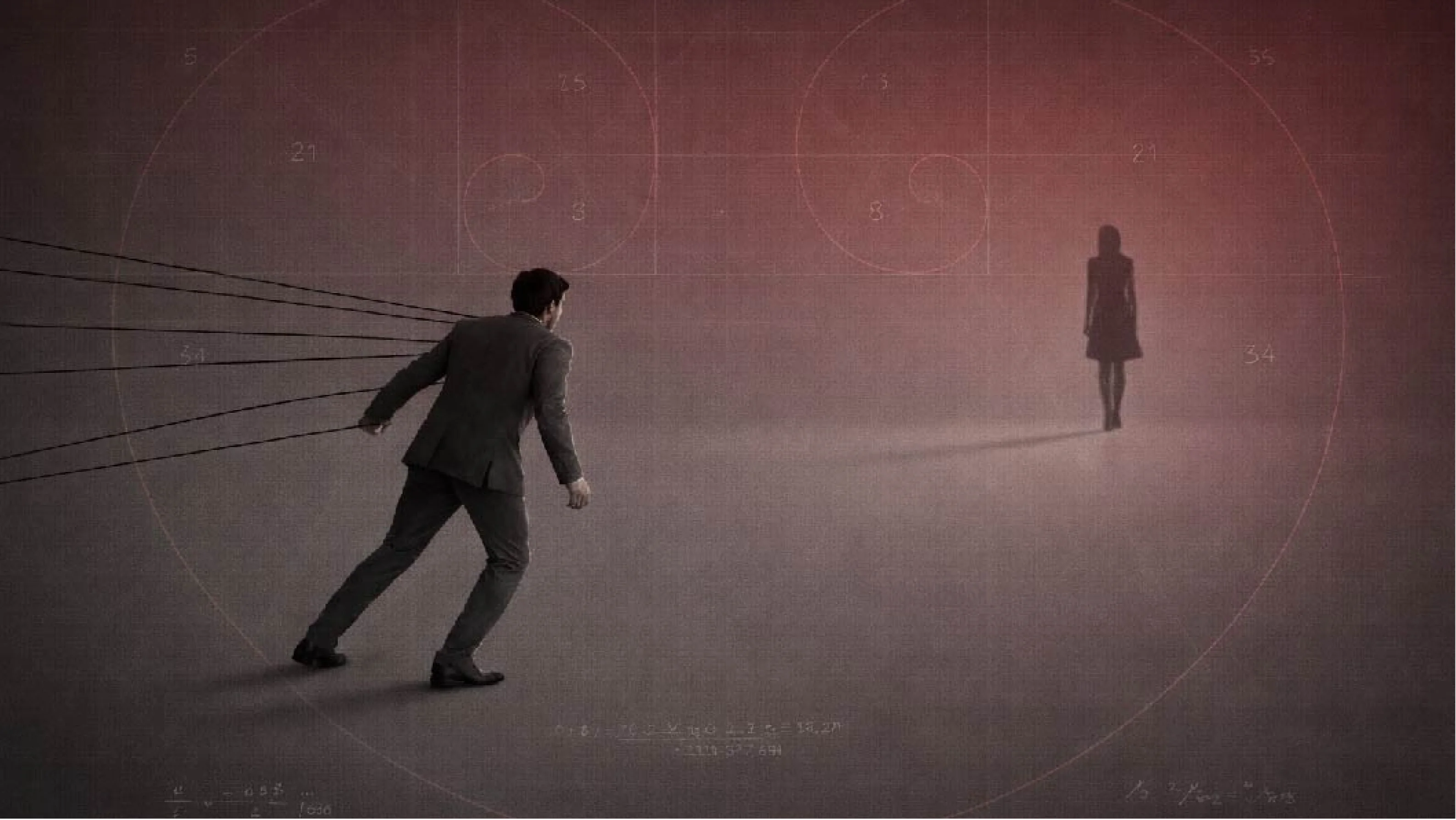
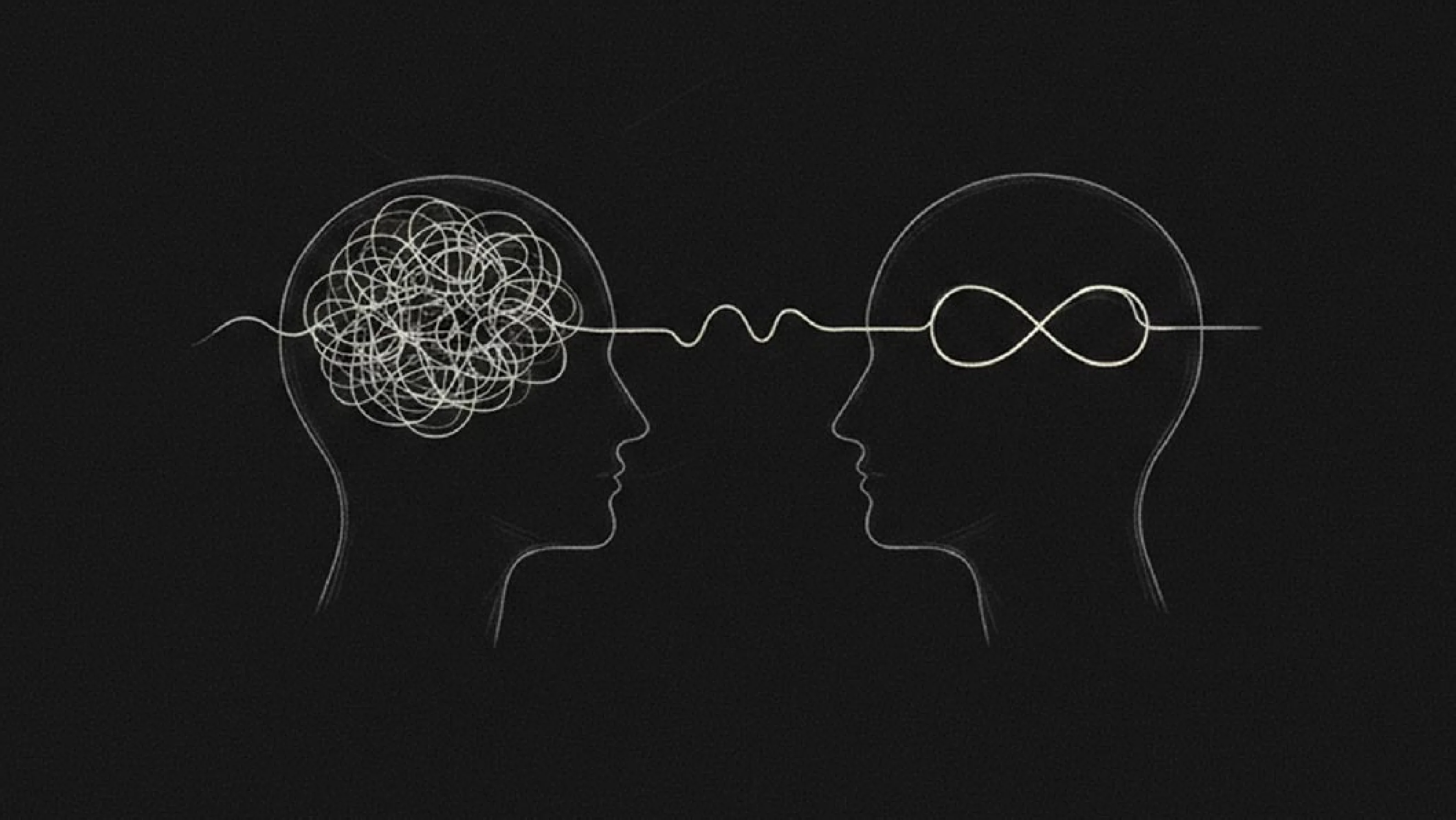
.svg)

.svg)
